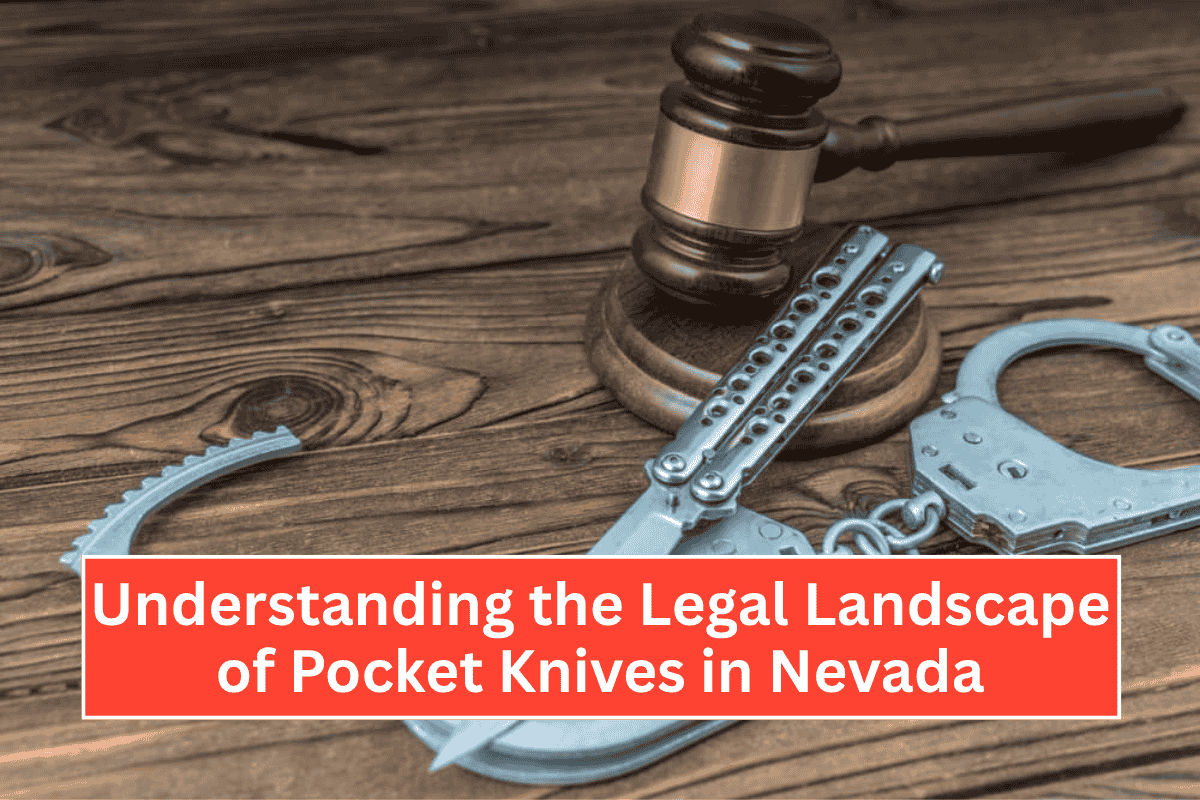Knowing Nevada’s knife laws helps you stay safe and avoid trouble. This guide breaks down what you can and can’t do, what penalties you might face, and how to defend yourself if charged. Whether you’re just curious or need to protect your rights, this explains everything clearly.
What Knives Are Legal in Nevada
Nevada is pretty open when it comes to carrying knives. You can legally carry almost any kind of knife, including stilettos, bowie knives, switchblades, and balisongs. The state does not ban specific types of knives. But cities or counties can add extra rules.
For example, in Clark County you need special permission to carry a knife with a blade of three inches or longer in a concealed way.
Concealed vs. Open Carry
Concealed carry means hiding the knife so others can’t see it—like in your pocket, in a bag, or under a jacket. If you conceal a dangerous knife, machete, dagger, or switchblade, you may need a CCW permit. Openly carrying a knife—letting it show—is allowed.
But carrying daggers, dirks, or switchblades on school property or child care sites is illegal. Local authorities might also set limits.
Where You Can’t Carry a Knife
There are special places where knives are not allowed, whether hidden or out in the open. These include schools, public universities like UNLV, licensed child care facilities, and their vehicles.
Exceptions apply for law enforcement, security personnel, or people with written permission. If you ignore these rules, you could face serious trouble such as gross misdemeanors or more.
Penalties for Knife Offenses in Nevada
Breaking knife laws can lead to different charges depending on the location and type of knife. Here’s what might happen:
- Carrying a concealed knife with a blade of three inches or longer in Clark County without permission can result in misdemeanor charges, up to six months in jail, and fines up to $1,000.
- Carrying a concealed dangerous knife without a permit (outside Clark County) is a gross misdemeanor. First-time offenders might get up to 364 days in jail and $2,000 fines. A second offense may become a felony with tougher penalties.
- Bringing a knife to school is a gross misdemeanor. You could face nearly a year in jail and $2,000 in fines.
- Brandishing a knife in a threatening way with two or more witnesses is a misdemeanor, punishable by up to six months in jail and a $1,000 fine.
Defenses You Can Use
Some defenses can help if you’re charged. These include showing the knife was openly carried, its blade was under three inches, it wasn’t a banned type for school zones, or you acted in self-defense. If evidence is weak or unclear, charges may be dropped or reduced.
CCW Permits for Concealed Knives
Nevada law says you need a Concealed Carry Weapon permit for dangerous knives like machetes, swords, or switchblades. Since state law doesn’t clearly list all covered knives, your best option is to contact your local sheriff.
In Clark County, a permit is required for any concealed knife blade three inches or longer. Reach out to the Las Vegas Metropolitan Police Department or sheriff’s office to learn how to apply.
Brandishing vs. Assault with a Weapon
Brandishing means drawing a knife in a threatening way in front of two or more people. Nevada prohibits this for deadly weapons like dirks, swords, or sword canes.
Assault with a deadly weapon is a stronger charge because it involves creating fear in even one person and includes harsher penalties. Brandishing charges are misdemeanors, while assault charges can be felony level.
Sealing Convictions and Immigration Risks
If convicted, you may wait before applying to seal the record. For example, misdemeanors often need 1–2 years, while felonies need up to five years. Dismissed charges can be sealed immediately.
For non‑citizens, immigration outcomes depend on how severe the crime was, so legal help is crucial to avoid deportation problems.
Related Laws
Using a knife during a crime can add 1–20 extra years to your sentence, though never more than the sentence for the original crime. Nevada also has laws against battery (like stabbing or hitting) and assault (causing fear of harm).
These can be misdemeanors or felonies depending on whether a weapon or serious harm is involved. The knife laws in Nevada allow you to carry many types of knives openly. But concealed carrying—especially in Clark County—comes with limits, and certain places like schools are always off-limits.
Penalties range from misdemeanors to felonies, and defenses are available depending on the case. Always check local rules, get permits if needed, and act responsibly. When in doubt, consult legal help to protect your rights and stay safe.












